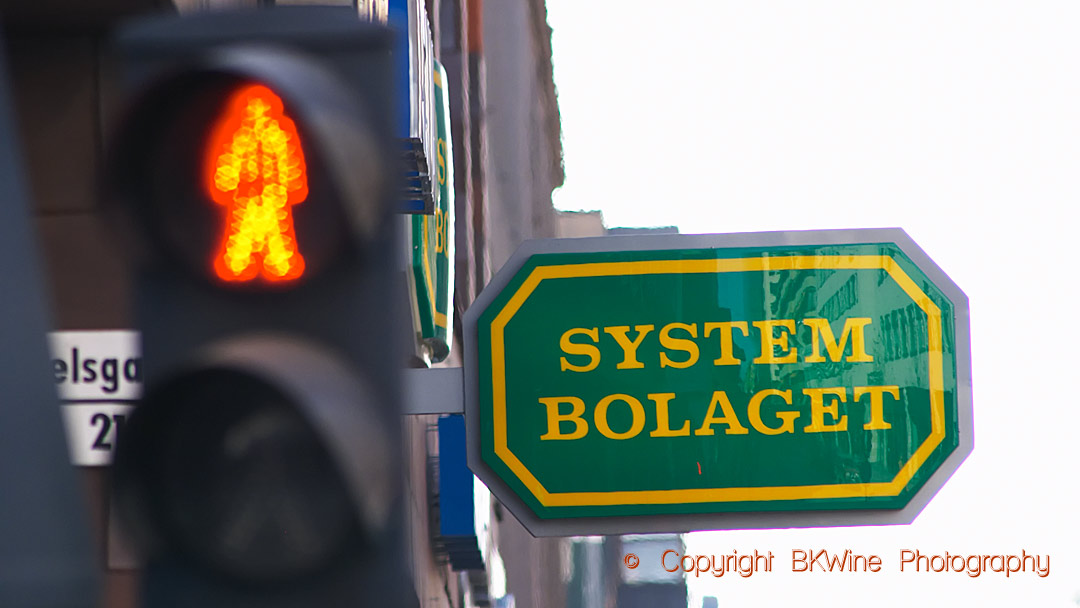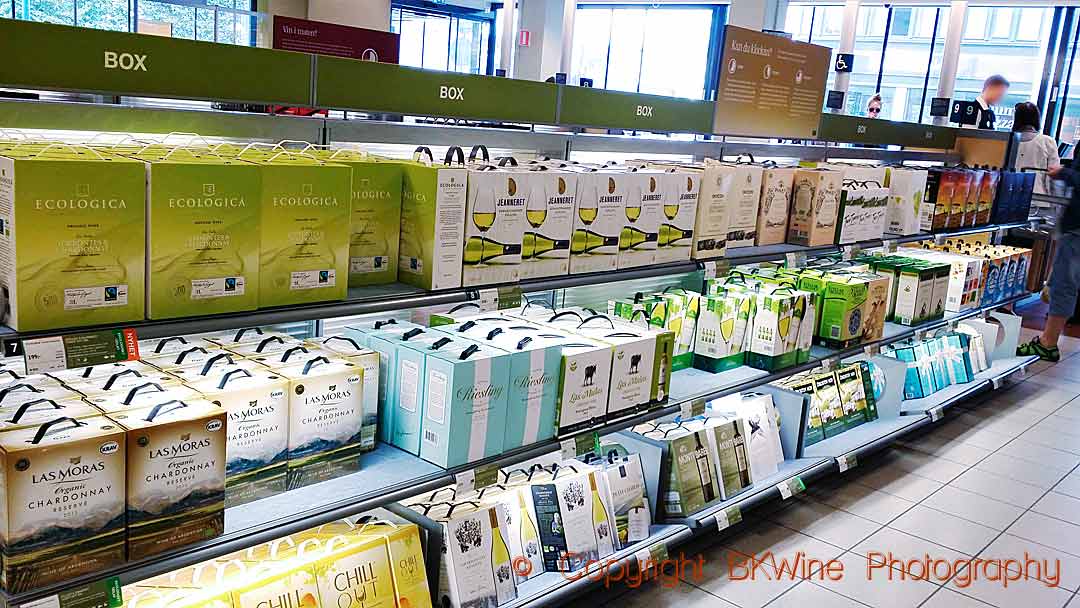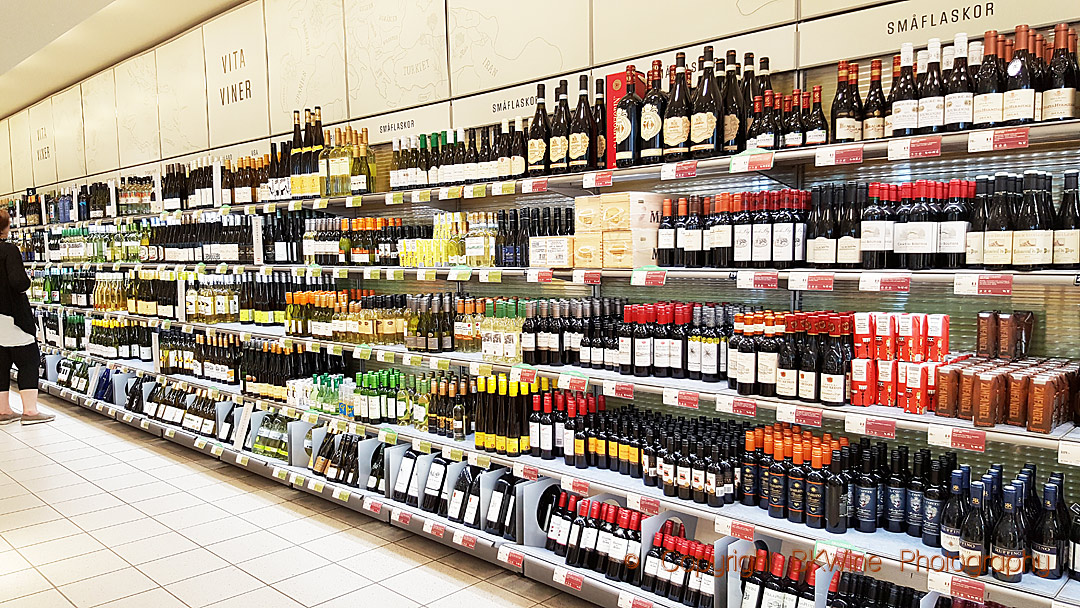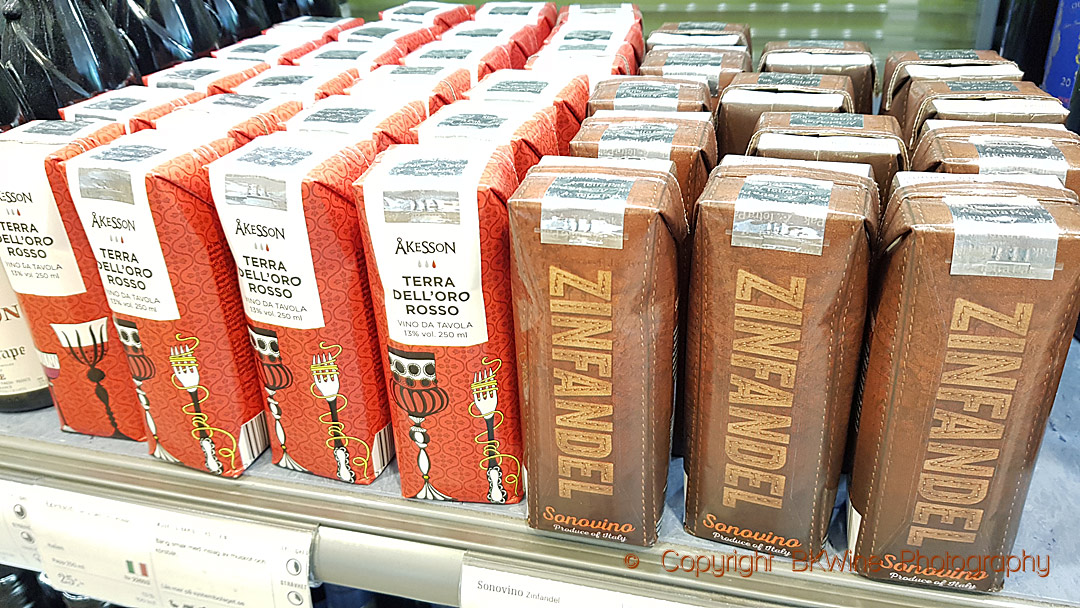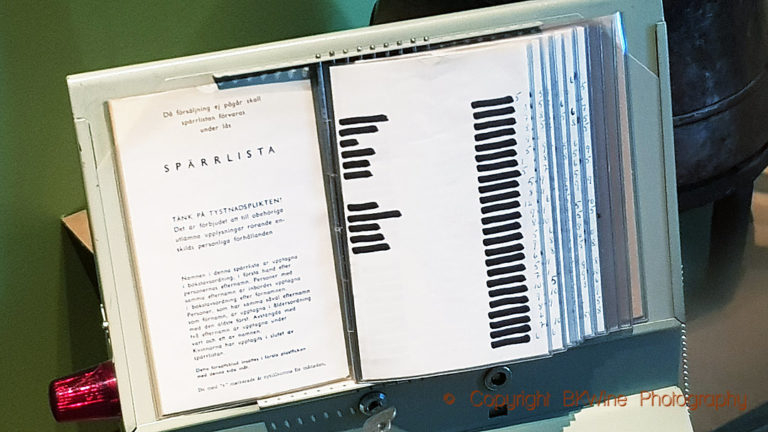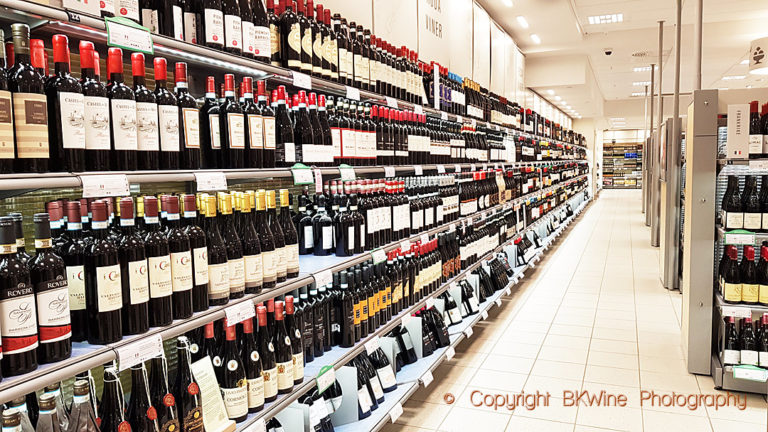This is about Swedish alcohol politics, about how the Swedish monopolist Systembolaget is attacking the emergent online wine retailers selling to the Swedish market. But since I know some of our readers are interested in the wine trade in Sweden we also publish this in English although it’s about Swedish politics.
A couple of things to explain the context:
- When Sweden joined the EU, EU regulations should have meant that the alcohol retail monopoly was abandoned. However, Sweden successfully argued that the monopoly was vital for public health and the EU agreed to an exception and let Sweden keep its monopoly. (It is debatable if the argument holds, much indicates the opposite, for example, that only just a bit over 60% of all alcohol consumed goes through the monopoly.)
- However, Sweden had to agree to open its borders to cross-border trade within the EU. This meant that Swedes are allowed to buy alcohol from anyone outside of Sweden and have it delivered to Sweden, provided Swedish taxes are paid.
- This opened the door for entrepreneurs launching online retailers (based outside of Sweden but in the EU) selling wine to Swedish consumers, so called “nätvinhandlare” or online wine shops.
- These online wine shops are now under attack from Systembolaget. The monopolist has taken two of them to court, Winefinder and Vivino, for violating the Swedish regulations. Both have been acquitted. But Systembolaget have now appealed the ruling to the Swedish Supreme Court.
Here’s the story.
Is this the beginning to the end of the alcohol monopoly?
Systembolaget, the monopoly retailer for alcohol in Sweden, should by this time have spent quite a lot of money on attacking (harassing?) online wine retailers. Most likely many millions of the money you paid them for the wines you bought there. The last two in the monopolist’s firing line are the online wine retailers Vivino and Winefinder. Systembolaget has involved both in legal proceedings. Both online wine retailers were acquitted by the courts and Systembolaget’s claims were not considered valid.
Winefinder was recently acquitted in the Patent and Market Court of Appeal (Patent- och Marknadsöverdomstolen, PMÖD), which means that the court did not consider that Winefinder’s activities were contrary to Swedish law, one must assumed.
But Systembolaget thinks it knows better. The company has now appealed the acquittal to the Supreme Court (Högsta Domstolen, HD). However, it is not a given that a case will be taken up in the Supreme Court. They only do this if they consider the case “important”, so we will see what happens.
Below, at the end of this article, we publish Winefinder’s views on the situation. It is a text that may justify some comments from someone who has long been interested in this question (me).
Public health
Systembolaget obviously believes that this activity (online wine shops) is a threat to public health. The wine and spirits retailer Systembolaget has the task of making us drink less and better (a task they carry out with dubious success judging by the results).
It is far from clear why online wine retailers threaten public health. Most wine shops on the internet aimed at Sweden, not least Winefinder, mainly sell wines of good to high quality. The average price of a bottle sold by Winefinder is SEK 380 (~38 euro). The average price at Systembolaget is reportedly SEK 81 (~8 euro). Which of these is the biggest threat to public health?
More than half of all wine sold at Systembolaget is sold in bag-in-box (called “box” in Swedish), a packaging that studies have shown increases consumption (and which is also sold at a volume discount by the Systembolaget, compared to the same wine in bottle). Winefinder does not sell bag-in-box wines. Which of these is the biggest threat to public health?
Online wine trade accounts for between one and two percent of total consumption today. A very small part. Compare it with e.g. restaurant consumption, which with around ten percent of total consumption is the second largest source of alcohol (on par with travel imports at about the same level). Perhaps it would be more effective for public health if Systembolaget fought the ten times greater source of alcohol, the restaurant industry? Why do they not do it? Why harass entrepreneurs who make a big effort to ensuring that Swedes have access to a better range of wines than the meagre monopoly range but leave those who cause a lot of drunkenness on “premises” and on the country’s streets and sidewalks?
Systembolaget’s schizophrenic role for public health
For an outside observer, someone who is not familiar with the history of Swedish alcohol policy, it must also seem absurd that Systembolaget is responsible for alcohol-related public health questions.
The large wine and spirits retail shop chain is, at the same, the on one that is supposed to make the Swedish people consume less? It must be a schizophrenic role.
We would no doubt have a more efficient implementation of the alcohol policy, more efficiently executed projects to reduce the harmful effects of alcohol, if the responsibility for this lay with an independent organisation with this as its main responsibility, instead of placing that responsibility with the alcohol seller.
This, combined with a carefully thought out and effectively controlled system with licensed shops, shops that can lose their license if they misbehave (this will hardly happen to a Systembolaget shop). And no monopoly.
This would be a better way to fight against the negative effects of alcohol.
Of course we should allow online wine sales
The independent online wine trade has existed and been regulated in Swedish law since 2007. A legal activity. Today, there are perhaps about fifty online wine retailers, most of them very small and focused on a small niche. Winefinder is one of the largest. In comparison with Systembolaget’s own operations, their impact on public health is minimal, largely non-existent. Still, Systembolaget chooses to try to stop it.
The independent online wine trade has opened a window for wine-loving Swedes to get good wines outside Systembolaget’s own relatively narrow range. Maybe this is what has made Systembolaget spend what are surely many millions of kronor on putting sticks in the wheel for the wine shops on the internet? The monopolist perhaps fears that the online wine retailers’ operations will lead to people over time understanding that Systembolaget is not the world’s best wine store? Fears that people would begin to understand that private wine merchants can do a better job than the monopoly.
An example: It took Systembolaget nine years to succeed in implementing home delivery to the whole country. Many online wine retailers managed it from the start.
Another example: The online wine retailers give Swedish consumers a more varied and more exciting wine selection than the monopoly range. Not all in the same shop, but why would that be?
As more and more people begin to realize that there is a more exciting range to reach outside Systembolaget, perhaps fewer and fewer people will believe in the myth that Systembolaget gives Sweden one of the world’s best ranges of wine (or “assortment”, as Swedes are wont to say)? When fewer people believe in the myth of great range of wines, perhaps fewer people will think that it’s good to have a monopoly. And when the popular support for the monopoly (which today is based on many misconceptions, to a large extent the “world leading range”) disappears, well then the monopoly will probably disappear.
If you have not yet explored the Swedish online wine retailers, you can find most of them in our big list of Swedish online wine retailers (click here).
Systembolaget’s “hypocrisy”, but… Winefinder supports the monopoly?
In its text, Winefinder says “Systembolaget’s hypocrisy risks toppling the alcohol monopoly” (see how they reason below). In the long run, this can be true, if the question goes on to the EU and the Swedish “exception” (monopoly) is then questioned. (More on this below.)
In the same breath, Winefinder seems to want to present itself as one that cares about the existence of the monopoly. “Winefinder is (…) for a preserved monopoly.” That’s very strange.
If Winefinder is for the monopoly, wouldn’t then the only logical thing for them to be to close down the business? They are a company that directly competes with Systembolaget and that gives consumers an alternative to the monopoly range (a better alternative), a kind of way to circumvent the monopoly. Then to say that one is for the monopoly does not seem reasonable.
Maybe Winefinder makes the assessment that it is to their advantage – politically – to pretend to be for the preservation of the monopoly, so as not to upset too much those who still like the monopoly, but this seems to be Winefinder’s own little hypocrisy.
The future of the monopoly at stake?
If you take a long-term view, it is probably inevitable that the alcohol monopoly will disappear. It is the last monopoly that remains (others have been abolished, gambling, pharmacies, television, etc). All the previous monopolies that have been abolished have led to a better situation for consumers. So in time, the alcohol monopoly will probably disappear as well.
But this issue, the dispute between Systembolaget and Winefinder, or rather the longer-term extensions of the legal conflict, may make it faster.
In part, it may be that the hullabaloo over this will make more people discover online wine retailers (see our long list of – almost – all online wine retailers here) and the much richer range they can find there.
But even the very basic principle may be questioned:
The Swedish “exception”
What is really interesting is if this is taken up in Supreme Court and then via the court or in some other way (maybe even without passing the court) comes up for discussion within the EU, either purely politically or in an EU court challenge.
The Swedish monopoly remains because Sweden got an exemption when we joined the EU. Monopolies are not compatible with EU rules on open and free markets, one of the EU’s basic principles and one of the reasons for the EU’s success, and the monopoly should actually have been abolished at the Swedish accession. But since Sweden succeeded in convincing EU politicians that the monopoly is vital for Swedish public health, the EU agreed that it could remain.
Today, however, there are few real arguments that underpin that the monopoly is important for public health. Rather, there are many indications that it is not important or even counter-productive for public health. For example, alcohol consumption per person has been steadily rising since the 1930s when the national monopoly was originally created. Consumption has risen under the monopoly until very recently when many rules have been liberalized (travel imports, premice licensing, monopoly shop opening hours, self-service as opposed to over-the-counter in the state liquor shops, etc.) and consumption has then actually slowed down. Hardly thanks to the monopoly.
Another example: there are probably few countries that have as much wine advertising in the media, in newspapers, television, internet, etc., as Sweden. And this torrent of wine advertising is rooted in how the monopoly works. The monopoly’s way of functioning drives wine importers to spend more and more on advertising. We would probably “suffer” from less alcohol advertising without a monopoly.
So maybe it would be good if the case went to the EU and the Swedish “exception” was reconsidered?
Winefinder’s text
Here is the entire opinion post that Winefinder wrote:
Systembolaget’s hypocrisy risks toppling the alcohol monopoly
Recently, two Swedish courts in two different judgments have ruled that the so-called distance trade in wine to Sweden from another EU country is legal, both according to Swedish alcohol legislation and current EU law. First in the Patent and Market Court (Patent- och Marknadsdomstolen, PMD) in 2021 where Vivino won against Systembolaget and most recently in June this year in the Patent and Market High Court (Patent- och Marknadsöverdomstolen, PMÖD) where we, Winefinder, also won against the monopoly.
Despite this, Systembolaget now chooses to try to get the Supreme Court (Högsta Domstolen, HD) to reconsider PMÖD’s ruling. The action is part of a larger lobbying campaign where Systembolaget uses public health arguments to make foreign actors suspicious. We question whether the path chosen by Systembolaget, which has affected us and our colleagues negatively, is the right way to pursue the fight for better public health. Is it really part of a state-owned company’s core business to sue small private companies for a business that has been legal and regulated in Swedish law since 2007? Shouldn’t it be more important to focus on reducing alcohol consumption!?
Winefinder has conducted “distance trading” (editor’s comment: this is the term used to describe a non-Swedish EU country selling to a customer in Sweden) via the internet since 2007. This after the European Court of Justice in the so-called Rosengren-ruling ruled that Swedish private individuals have the right to buy wine from another EU country, without interference from Systembolaget. The ruling de facto meant that distance trade in wine to Sweden became legal. Since then, several established e-commerce companies have emerged for quality wines aimed at Swedes.
Since the start, Winefinder has focused on quality wines from top producers, older and mature vintages as well as small allocations for the collector. We have kept up with the wine world’s trends to be relevant to wine-interested consumers and we make available wines from small selected producers who rarely get the chance to enter the Swedish market. Therefore, we are a complement for the interested and quality-conscious consumer, not a threat to the Swedish monopoly.
Unlike Systembolaget, we do not sell alcoholic RTDs (alcopop), spirits or box wines (bag-in-box). A bottle sold with us costs on average around SEK 380 including VAT and tax. At Systembolaget, the corresponding price is SEK 81. Systembolaget’s focus is on best-selling and mass-produced wines. This is where the company has the majority of its sales.
With serious players in the online wine trade, a serious complement to the monopoly is ensured with appropriate age and sobriety checks at deliveries. All established online wine retailers are registered as distance sellers with the Swedish Tax Agency. The state receives tax and VAT on the products. Since the start in 2007, we have had a fruitful dialogue with the Swedish Consumer Agency, the Swedish Customs and other authorities. No one, except Systembolaget and IOGT-NTO (ed.: the Swedish teetotal lobbying organisation), has questioned our operations.
When the monopoly works, it is a good model for holding back the harmful effects of alcohol. At the same time, it makes a large selection of wines available for the whole of Sweden and not only for wine enthusiasts, where the quality-conscious online retailers may have their largest customer base. Winefinder is thus for a preserved monopoly. But it is with two important caveats.
First, everyone must have a clear idea of what the monopoly entails. Upon joining the EU in 1995, Sweden was granted an exemption to maintain the monopoly on retail trade in alcoholic beverages. Since then, trading patterns have fundamentally changed. Online distance trading did not exist in 1995. The distinction between e-commerce and retail is in line with the intentions of the exemption granted in 1995. It does not make sense to apply this exemption wherever the monopoly company itself wishes. In the long run, Systembolaget’s actions risk making the EU fed up with even the exemption for retail.
Secondly, Systembolaget currently manages the monopoly in a way that undermines its long-term survival. In several areas, Systembolaget is carrying out its assignment well, as can be seen in their own customer surveys. At the same time, they choose to invest large resources in attacking small quality-conscious distance traders and accusing them of threatening public health.
Talking about public health is a bold balancing act for a company that is perhaps Europe’s largest player in alcoholic RTDs (alcopop) and bag-in-box wines. Box wines currently account for over 50 percent of Systembolaget’s wine sales. When consumers buy boxes, they tend to drink 50 percent more wine than if they had bought bottled wine, according to CAN – the Central Association for Alcohol and Drug Information (Centralförbundet för alkohol- och narkotikaupplysning). Systembolaget is also trying to squeeze prices from suppliers. Systembolaget’s downward price pressure and focus on cheap boxes is of course a much greater public health threat than the online trade in quality wines.
After gradually increasing the opening hours – towards weekends and evenings – in the physical stores, Systembolaget has now also taken the step into conducting online shopping. As a retail monopolist, it should of course be able to do so, but it also undermines large parts of the company’s own argumentation. Systembolaget has claimed that the age controls risk not working when we use external transport companies. Now Systembolaget itself uses external transport companies.
However, it is completely logical that Systembolaget has jumped on e-commerce, because it will inevitably increase from today’s limited level. And online retailers will not go away. Where should this online commerce take place? With serious players who take their responsibility with age checks, taxes and working conditions? Or with rogue companies that may even operate from outside Europe? These questions must now be answered by politicians and the general public – in the end, it is the public who will pay the bill for the backside of alcohol.
We welcome the clarification of the regulations as expressed in PMÖD’s judgment. The market must be clearly regulated. If the Supreme Court still chooses to try this case this again, we can only hope that there will finally be an end to the monopoly company’s dubious use of tax funds to push public opinion against other serious players. Let’s take the debate forward. And enable Sweden to maintain the retail monopoly with legal, safe and secure complements for all wine enthusiasts. It is a good basis for a continued responsible alcohol policy.
Alex Tengvall, Chairman of the Board of Winefinder ApS


